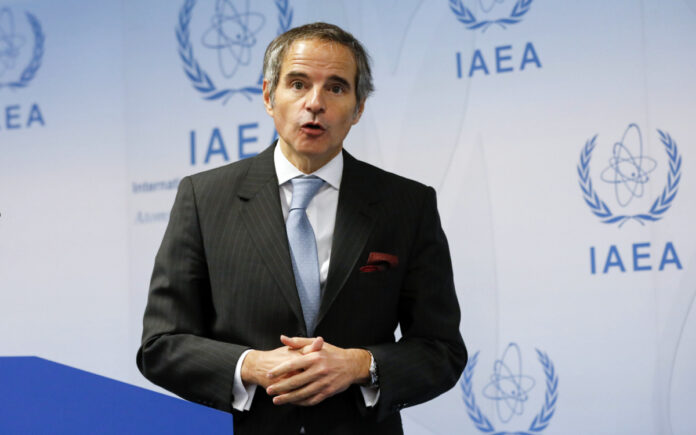New York: U.N. nuclear agency chief Rafael Grossi has expressed concerns over the serious situation around Russia’s Kursk nuclear power plant but confirmed that the International Atomic Energy Agency (IAEA) has no plans to establish a permanent mission at the site.
In an interview published on Tuesday, Grossi noted that while Ukrainian forces remain in Russia’s southern Kursk region after crossing the border last month, they are currently about 40 kilometers (25 miles) away from the nuclear facility.
“The situation is serious in that a military incursion has taken place, and that incursion is not that distant from a nuclear power station,” Grossi, Director General of the IAEA, told Russia’s RIA news agency.
During his visit to the Kursk plant last month, Grossi observed that the facility, which consists of four reactors, could be “extremely exposed” if it were to come under attack due to the lack of a containment dome, a key protective structure found at many other nuclear sites.
Speaking to RIA ahead of the U.N. General Assembly in New York, Grossi expressed hope that the situation would stabilize, eliminating the need for further visits to the plant. “I hope there will be no need to return to the Kursk station as that would mean that the situation has stabilized,” he remarked.
Also Read | Zelenskiy Says Ukraine Nears End of War with Russia
Unlike Ukraine’s four nuclear plants, including the Zaporizhzhia facility—seized by Russian forces early in the February 2022 invasion—Grossi said there are no plans to permanently station IAEA observers at the Kursk plant. He emphasized that the situation at Zaporizhzhia remains tense, with both Ukrainian and Russian forces frequently accusing each other of planning attacks on the station.
Also Read | Putin Calls on 47 Nations’ Citizens to Relocate to Russia
“My experts continue to report on military action near the station,” Grossi told RIA.
Since the start of the war, Grossi has visited the Zaporizhzhia plant five times and has repeatedly called for restraint from both sides to prevent a potential nuclear catastrophe.



